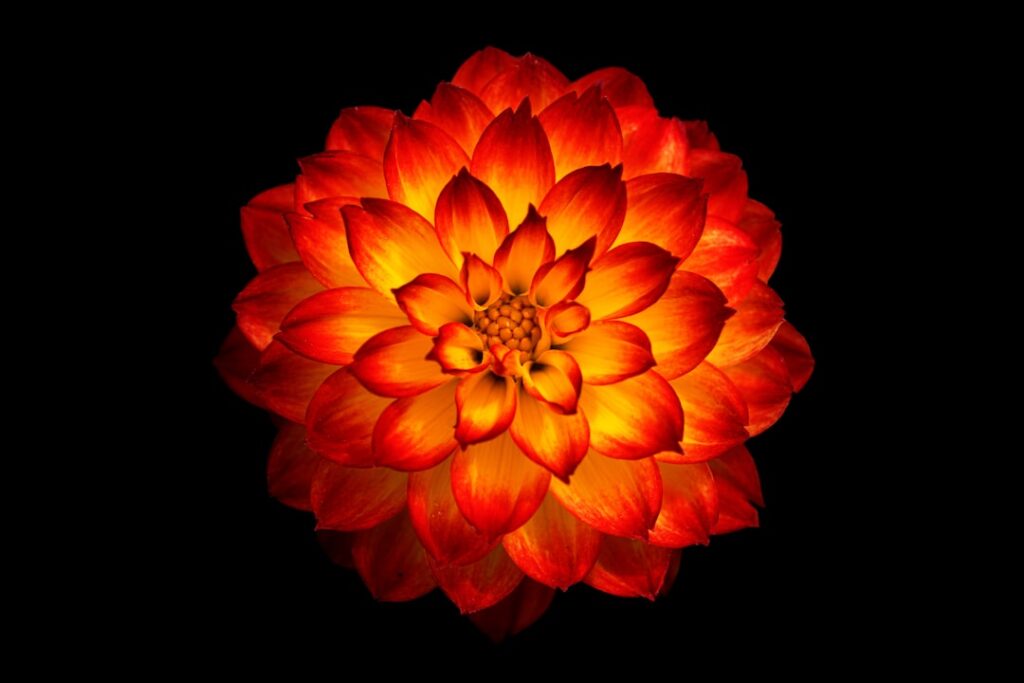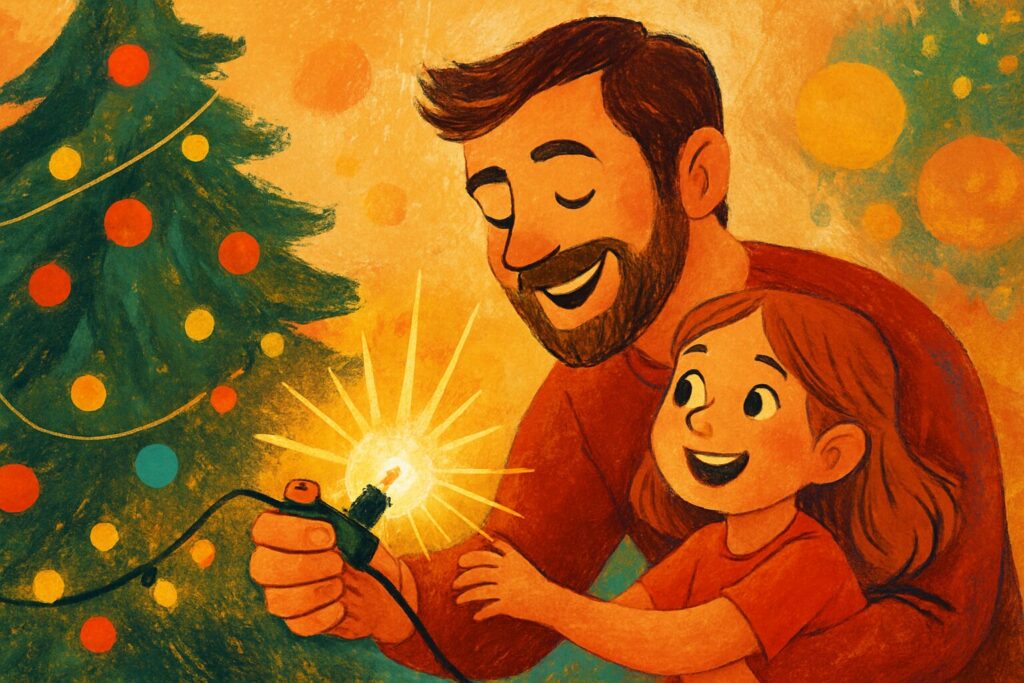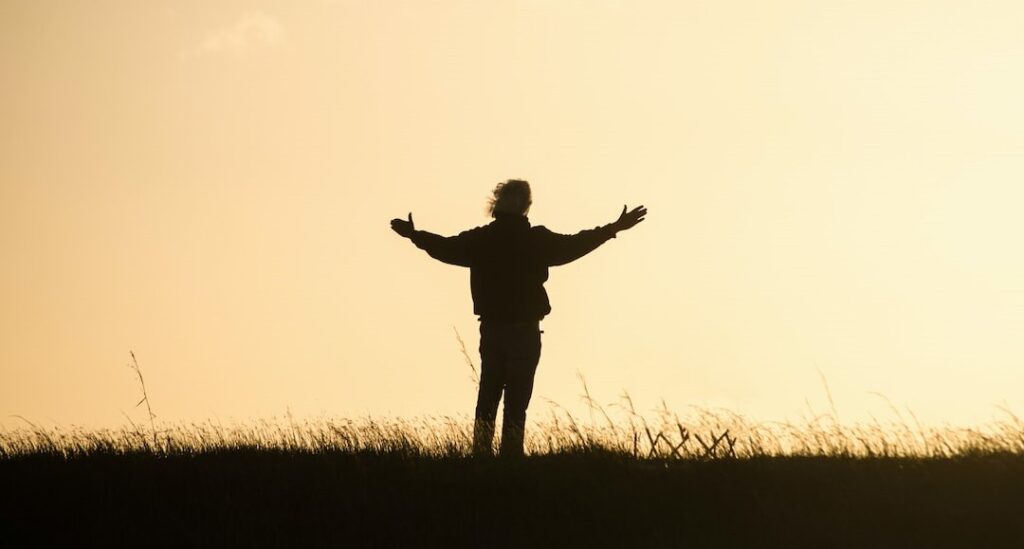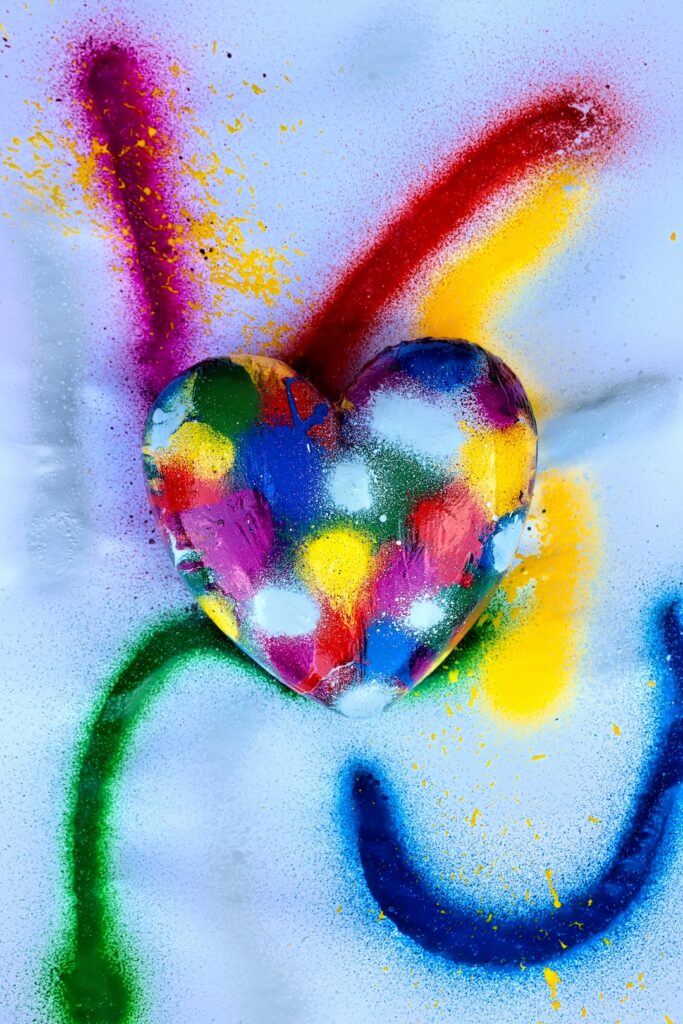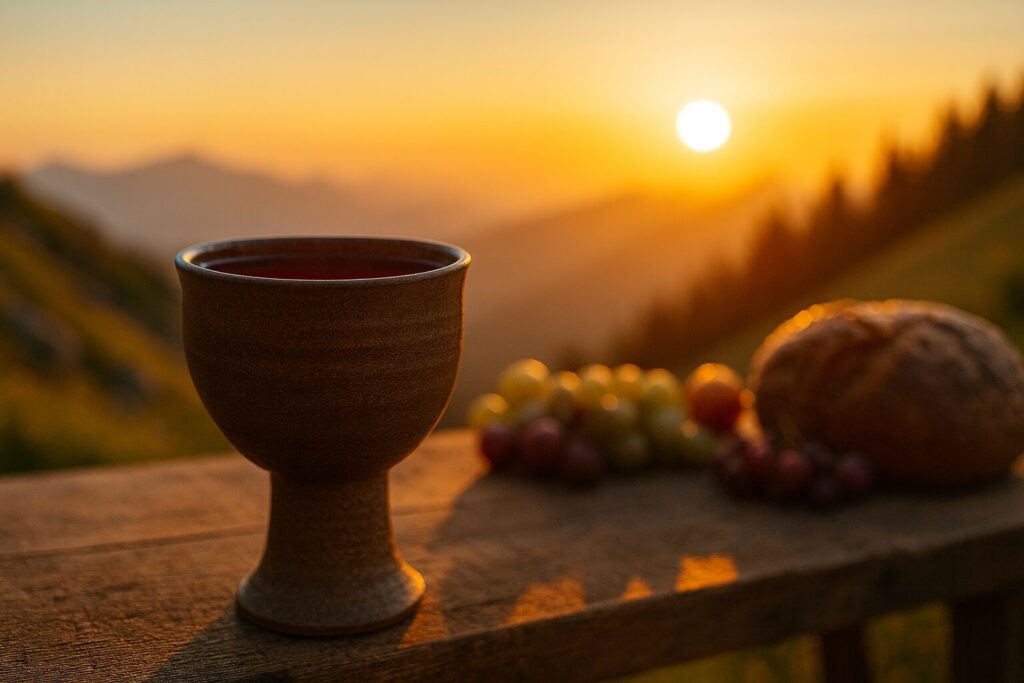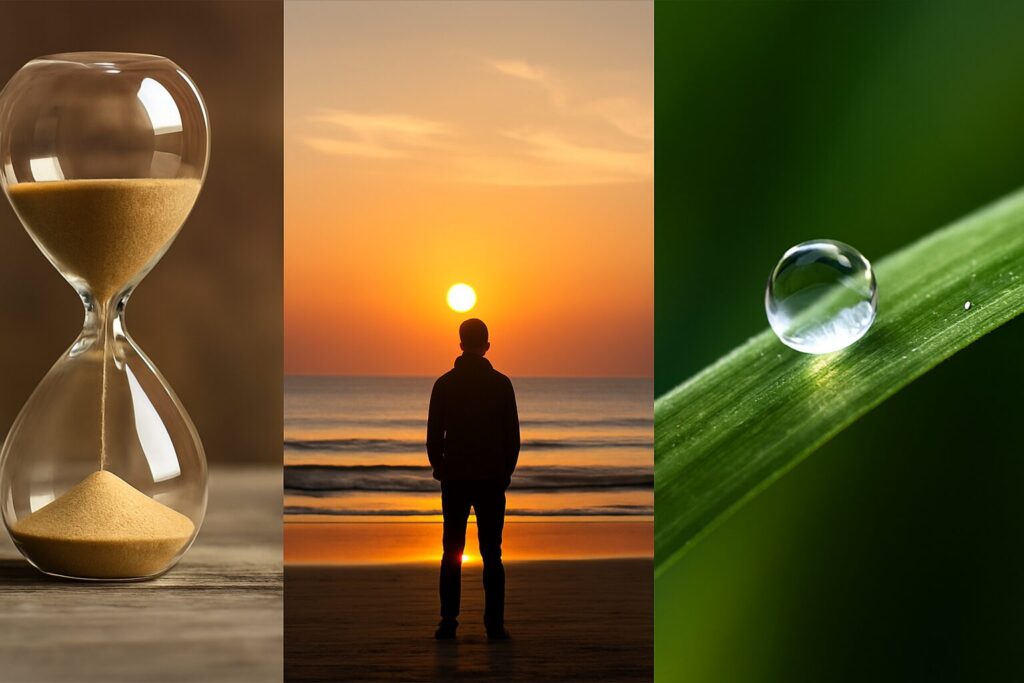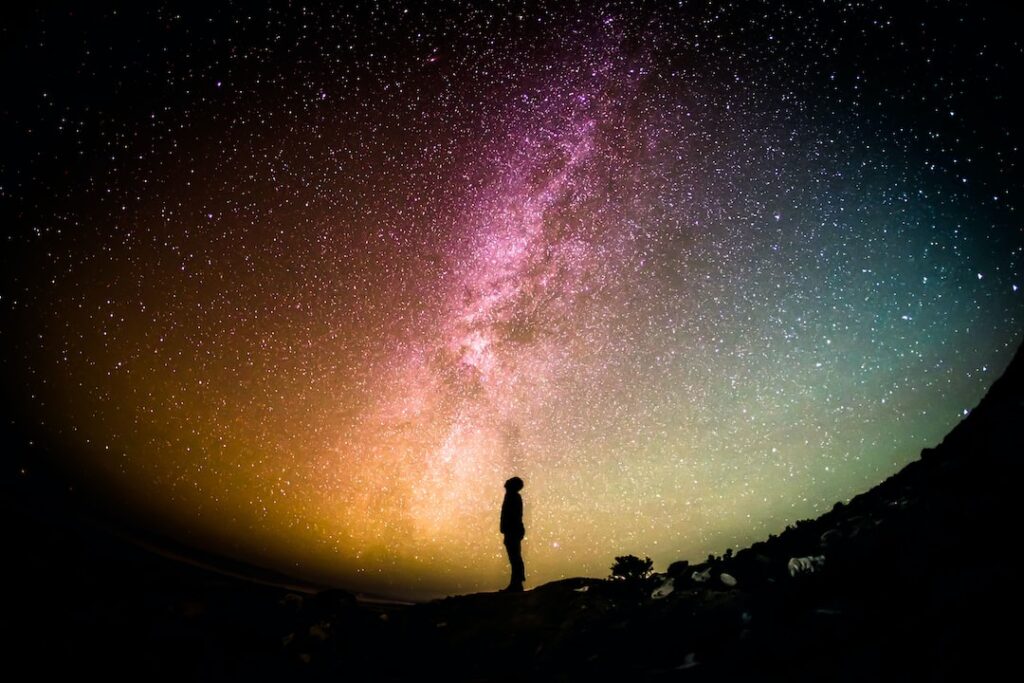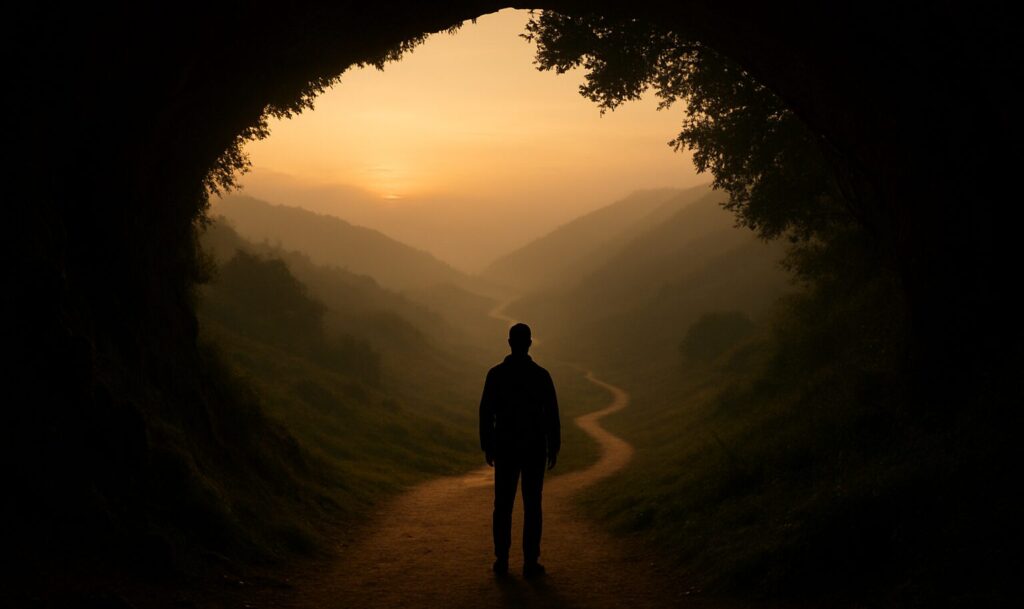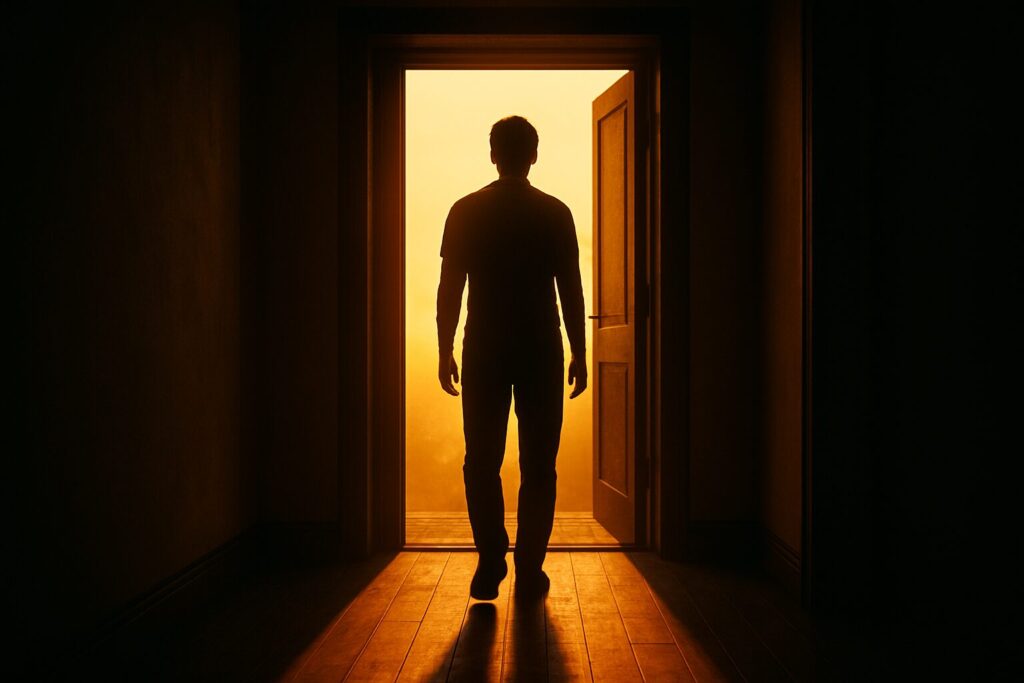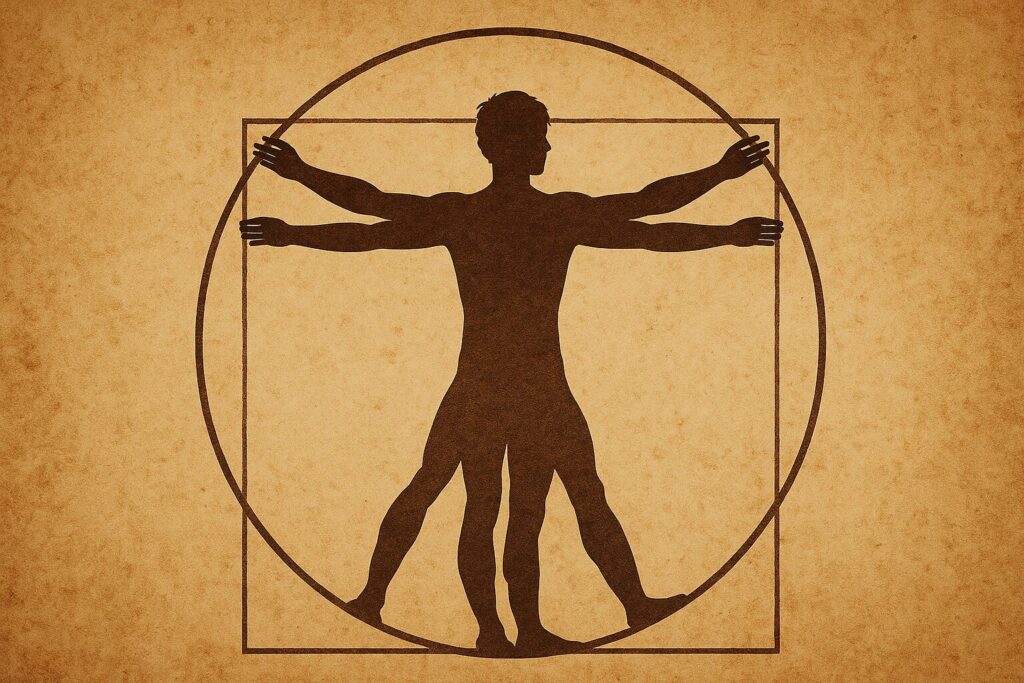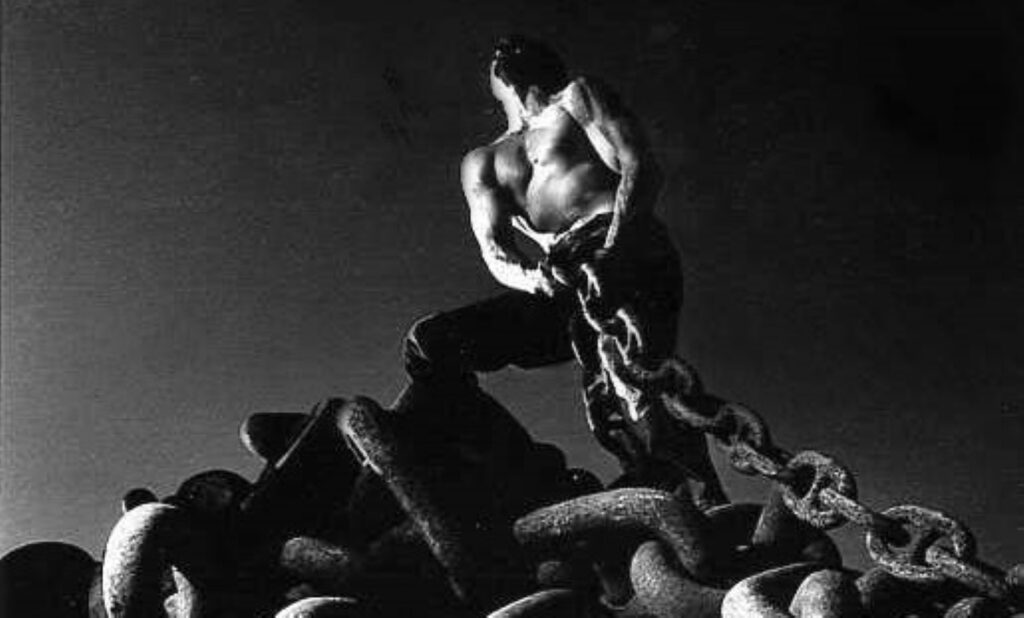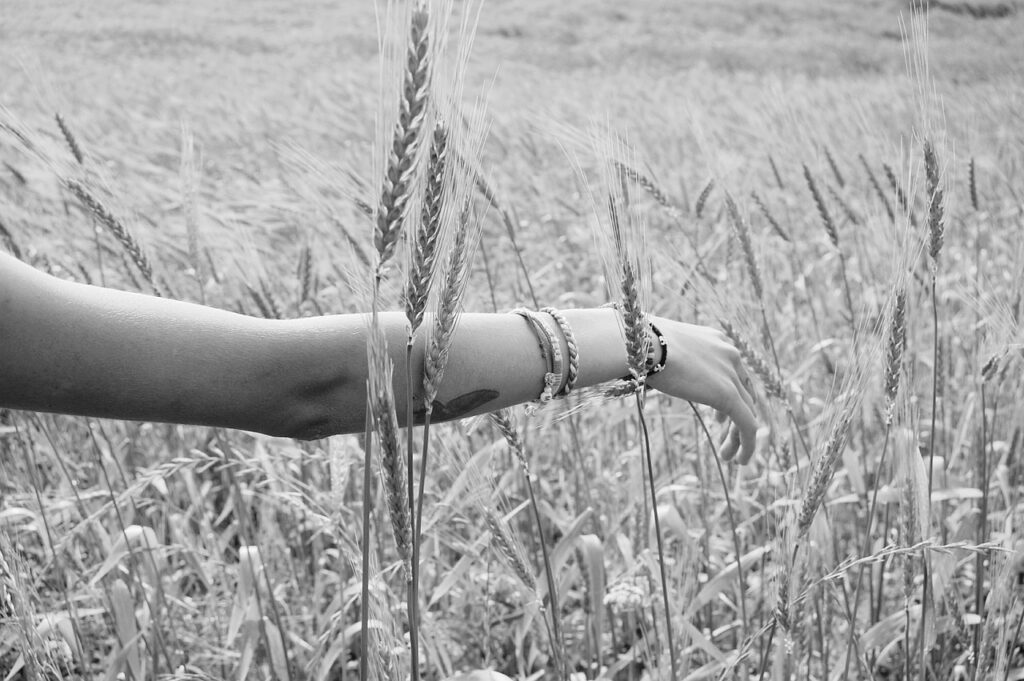Life
Most of us would rather not think about death. We busy ourselves with errands, jobs, and chatter, keeping mortality out of sight. But whether we look at it or not, it shapes everything. Death is the silent boundary of our existence. It is the reason every choice matters, the reason every day is precious, the reason that life itself is urgent.
The Courage of Sentiment
In our culture, sentiment often gets dismissed. We praise toughness, stoicism, control. We admire the person who “never lets emotions get in the way,” the leader who never cries, the friend who always keeps their composure. Vulnerability is framed as fragility. Sentiment is mocked as softness. But here’s the truth: sentiment is courage. It is not weakness to feel deeply. It is strength — because it takes far more bravery to care than to wall yourself off.
The Recuperation Station
We don’t live life on a straight, endless highway. We live it more like a long, winding trek — hills, valleys, storms, clearings. And no trek can be endured without stopping points along the way. That’s what a recuperation station is: a deliberate place or practice of renewal. It’s where we catch our breath, regain strength, and remind ourselves of why we’re moving forward at all.
Why We Need to Love Life
Human beings face a strange paradox. We must choose to live — but to choose life, we must already value it. No other creature has this problem. A cat does not wake up wondering whether existence is worth it. A tree does not debate whether to grow. Only we, as volitional beings, must look at life and say, Yes, I want this.
The Gift of Solitude
Modern life is allergic to silence. We fill every pause with screens, every walk with earbuds, every quiet moment with chatter. Alone time can feel threatening, as if stillness means emptiness. But solitude is not loneliness. Loneliness is the ache of absence; solitude is the gift of presence — presence with ourselves. When embraced, it becomes a fertile space for reflection, creativity, and restoration.
The Leap Into Potential
Potential feels intoxicating. It whispers: You could be great. You could write the book, launch the business, find the love, paint the canvas. Potential flatters us, because it suggests greatness without risk. But potential is not enough. A life can be heavy with possibility yet empty in reality. The tragedy is not wasted effort but wasted potential that never turned into anything lived.
Fulfillment, Not Happiness, as Life’s True North
“Happiness” is one of those words everyone nods at but no one defines the same way. Some mean pleasure. Some mean comfort. Some mean the absence of pain. Others mean success or contentment. The trouble is, happiness is fickle. It shifts with circumstances, moods, even the weather. If we make it our compass, we end up chasing a moving target.
Fulfillment, Not Happiness, as Life’s True North Read More »
Love: One of Life’s Greatest Gifts
We are all passengers on the same train — a train bound, eventually, for oblivion. But what a gift it is that while we ride, we get glimpses of wonder. And more than that: we get to share those glimpses with others. Some fellow travelers step off before us, and we will step off before others, but much of the joy is in the sharing. To love and to be loved is one of life’s greatest privileges.
The Preciousness of Our Life
Some mornings, I catch myself staring at the sky. It’s not a spectacular sky—no rainbow, no comet, no painter’s sunset. Just a soft blue streaked with clouds, the same kind of sky I’ve seen thousands of times. And yet I’ll pause and think: this is incredible. I’m here, breathing, awake to it.
Life as Humanity’s Thank-You Note
Stars don’t say thank you. Oceans don’t say thank you. Even most creatures never pause to wonder. But humans—we can. Every time you stop to appreciate the color of the sky, the sound of laughter, the feel of your child’s hand in yours—you are writing a thank-you note to existence itself. Not in ink, but in awareness.
The Origin of “Life Savor”
For as long as I can remember, I’ve been overly inquisitive. Some kids collect baseball cards; I collected questions. Why do people live as they do? What actually works in reality—and what’s just pretense? Why does one moment feel alive and radiant while another feels flat?
Life as Art
To exist is not merely to breathe, work, and endure. A life that only survives is a life unfinished. We long for more than subsistence. We long for beauty, for resonance, for meaning. This longing is not frivolous. It is the point. Our capacity to experience life as art — to treat existence itself as an aesthetic experience — is what makes human life radiant.
Your Emotional Core
Appreciation isn’t automatic. It depends on our inner condition. When our emotions are frazzled, our core unstable, every treasure of life blurs past unnoticed. Peace is not the same as pleasure. It’s not the absence of pain or the guarantee of comfort. Peace is a baseline — a steadying of the emotional core that lets us meet life with openness. Without it, the door to appreciation jams shut. With it, the door swings wide.
The Everyday Temptations of Conformity
Conformity appeals to something deep in us: the desire for safety. To walk with the herd feels secure. When everyone is moving in one direction, it’s tempting to go along, even if our heart whispers another way. And conformity can be comforting — for a while. To nod when others nod, to dress how others dress, to choose the path already mapped. It spares us conflict. It saves us from questions. But it also dilutes us.
The Courage to Be Human
We live under constant pressure to appear polished: flawless resumes, curated photos, carefully edited stories. The message is subtle but relentless: Don’t let them see the cracks. But the cracks are part of being human. To live authentically requires courage not to disguise them all. Courage, in this sense, is not only about heroism on battlefields or podiums. It’s about the daily bravery of letting ourselves be fully human — imperfect, vulnerable, unfinished.
Filling Our Cup
Imagine life as a cup placed in our hands. Some cups are long-stemmed, others simple clay. Some are ornate, others plain. We don’t choose the vessel. But we do choose how we fill it. A cup left empty at the end of life is a tragedy. The question is: will we fill it with a rich profusion of experiences, values, and loves, or will we let it stand half-empty, untasted?
Given and Created Treasures
Life hands us treasures in two distinct ways. Some are given: they arrive without our effort, woven into the structure of existence itself. Others are created: they emerge from our own hands, imaginations, and labors. Together, these two streams make up the bounty of being alive.
A Personal Mission: Falling Awake to Life
For as long as I can remember, that’s how I’ve felt about life. Not always in the form of bliss or ease, but as a steady undercurrent of awe. Awe at the sunrise over a mountain ridge, at the fact that I get to love and be loved, at the sheer strangeness of being conscious for a while in a universe of mostly unconscious matter. Life, I’ve come to believe, is not just to be lived. It is to be savored.
A Mortality Awareness Triad
It’s a paradox that takes a moment to sink in. The very fact of our mortality is what makes us blessed. Out of all the trillions of combinations of atoms that never existed in human form—you exist. You not only exist, but you exist with awareness, memory, imagination, and the ability to savor.
Life Is a Once-in-Eternity Gift
Every human life is a once-in-eternity chance. The atoms that make you will never again assemble in quite this way. This moment, this breath, this chance to savor existence — it is yours alone. Never to be duplicated. It’s easy to forget. Life’s ordinariness dulls us, its hardships weary us, its routines put us to sleep. But beneath the blur of familiarity lies something astonishing: we exist at all.
The Mirage of Numbing
When life grows heavy, numbing calls to us like a mirage.
A drink to quiet the nerves. A screen to scroll the hours away. A purchase to fill the hollow. A burst of workaholism to silence the questions. For a moment, numbing seems to help. The ache dulls. The noise fades. But then the mirage evaporates, and we find ourselves not refreshed but emptier, further from the wellspring of life.
How Do We Stay Sane Enough to Love Life?
Okay, Mr. Life Savor: yes, life is a gift. But it’s also a trial. Bills come due, bodies ache, relationships fray, accidents strike, and headlines darken our minds. Even when fortune smiles, stress and worry find their way in. So the question arises: how do we stay sane enough to keep loving life?
The Human Gift of Appreciation
As human beings, we carry a peculiar burden and a singular gift. The burden is volition: we must choose to live. We can drift, we can despair, we can even decide not to carry on. But the gift is appreciation: we can pause, look around, and see that life itself is worth choosing.
The Long Road to Selfhood
We live in a culture addicted to quick answers. “Find your true self.” “Unlock your destiny.” “Discover who you are.” As if identity were a hidden treasure chest waiting to be unearthed in one glorious moment of revelation. But selfhood doesn’t arrive like lightning. It unfolds like a long, winding road. There are detours, false starts, switchbacks, and stretches where the scenery seems to repeat itself. Becoming ourselves is not about one defining moment but a lifetime of becoming.
Why We Try
Why do we try? Why do we get up each morning, set goals, chase dreams, fight through setbacks, and reach again for more? The cynical answer is survival. We try because we must: food to eat, bills to pay, routines to maintain. But survival is only the foundation. Beyond necessity lies something deeper: a hunger for meaning, a desire to expand, a refusal to let existence slip by unnoticed. Trying is more than survival. It is gratitude in motion.
Carpe Diem: Seizing Our Time Alive
“Carpe diem” — seize the day. Two words from the Roman poet Horace that echo across centuries. They’ve been carved into marble, printed on posters, whispered in commencement speeches, and shouted from movie screens. It’s easy to dismiss them as cliché. But clichés often become clichés because they carry truth. And in this case, the truth is sharp: our time is short, and the day before us is all we can actually grasp.
Setting the Compass
Without orientation, the adventure dissolves into wandering. You may stumble on some wonders, but you may also waste your days, circle endlessly, or end up somewhere you never wanted to be. Life is like that. Deciding that life is precious — that it’s worth living and savoring — is the first and most important step. But once you’ve made that choice, the next question is: where are you heading?
The Preciousness of Being Human
Humans live with a peculiar gift: awareness of our own awareness. We don’t just sense—we notice that we are sensing. We don’t just value—we value the fact that we can value. This self-reflexive loop, unique in the animal kingdom as far as we know, changes everything.
Why Live? A Realistic Source of Meaning
Albert Camus once said the most important philosophical question is whether life is worth living. Before ethics, politics, or metaphysics, we must decide: why bother at all?It’s not a hypothetical question. Suicide reminds us that the choice to live is not automatic. As self-aware beings, we need a reason to keep going. A reason that makes sense of the struggle and validates the effort.
The Luck of Being Alive
Every blade of grass, every rock, every storm cloud exists—but without awareness. You, on the other hand, get to register the miracle. You can taste a strawberry, hear a symphony, laugh until your ribs ache. You are one of the very few arrangements of matter in the cosmos that gets to know it’s here. That alone is astonishing.
The Weight of Expectations
We all know the feeling. Expectations press in like a fog, filling our head with shoulds and musts. A grade, a job title, a social standing. One misstep feels catastrophic, as if the whole life we’ve imagined will implode. Sometimes the cost of those expectations is devastating.
Life’s Gift
A hymn. A moment. A win. None of these require life to be perfect. They only require that you have life, and that you be conscious of it. The great secret is that you don’t have to add anything to life for it to be worthy of your attention and appreciation. The fact that you exist at all is always present as a source of reverence and awe.
A Triad on Mortality Awareness
Mortality awareness isn’t about dwelling on death. It’s about waking up to life. Remembering death helps us see through the fog of expectations and disappointments to the miracle of simply being alive.
The Aesthetic Experience of Life
Why bother living? It’s a heavy question—but an honest one. We all ask it, whether in quiet moments or darker ones. What makes this life worth all the effort, the heartbreak, the slog? What’s the payoff that justifies the pain? Because let’s face it: life isn’t Disneyland. It’s messy. It’s hard. It’s work. So why do we stay?
